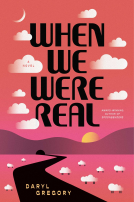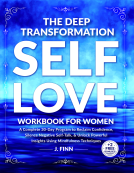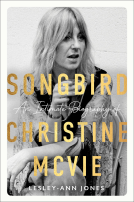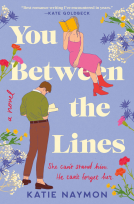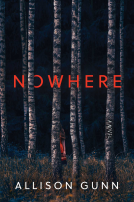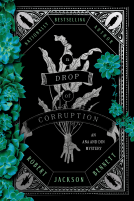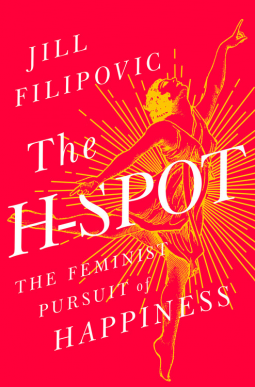
The H-Spot
The Feminist Pursuit of Happiness
by Jill Filipovic
This title was previously available on NetGalley and is now archived.
Send NetGalley books directly to your Kindle or Kindle app
1
To read on a Kindle or Kindle app, please add kindle@netgalley.com as an approved email address to receive files in your Amazon account. Click here for step-by-step instructions.
2
Also find your Kindle email address within your Amazon account, and enter it here.
Pub Date May 02 2017 | Archive Date May 02 2017
Perseus Books Group, PublicAffairs Books | Bold Type Books
Description
For women, though, pursuing happiness is a complicated endeavor, and if you head out into America and talk to women one-on-one, as Jill Filipovic has done, you'll see that happiness is indelibly shaped by the constraints of gender, the expectations of feminine sacrifice, and the myriad ways that womanhood itself differs along lines of race, class, location, and identity.
In The H-Spot, Filipovic argues that the main obstacle standing in-between women and happiness is a rigged system. In this world of unfinished feminism, men have long been able to "have it all" because of free female labor, while the bar of achievement for women has only gotten higher. Never before have women at every economic level had to work so much (whether it's to be an accomplished white-collar employee or just make ends meet). Never before have the standards of feminine perfection been so high. And never before have the requirements for being a "good mother" been so extreme. If our laws and policies made women's happiness and fulfillment a goal in and of itself, Filipovic contends, many of our country's most contentious political issues -- from reproductive rights to equal pay to welfare spending -- would swiftly be resolved.
Filipovic argues that it is more important than ever to prioritize women's happiness-and that doing so will make men's lives better, too. Here, she provides an outline for a feminist movement we all need and a blueprint for how policy, laws, and society can deliver on the promise of the pursuit of happiness for all.
Available Editions
| EDITION | Other Format |
| ISBN | 9781568585475 |
| PRICE | $38.00 (USD) |
| PAGES | 288 |
Featured Reviews
 Elena C, Reviewer
Elena C, Reviewer
In "The H Spot," Jill Filipovic focuses on the (not very) complex problem of "What do women want?" Combining personal anecdotes with a review of the available research and interviews with a diverse group of women on their lives and what would make them better, Filipovic provides an engaging and compelling examination of the feminist movement, the state of contemporary American women's lives, and where we might go from here.
In a nutshell, Filipovic's thesis is that, despite all the gains of feminism, "Americans [still] carry, and our institutions reflect, a profound and abiding antipathy toward women's day-to-day enjoyment and our broader fulfillment," and that the most subversive, and most difficult, thing a woman can do is prioritize her own happiness. She approaches this from multiple angles, including friendship, love, sex, parenthood, marriage, work, and food. Again and again she finds that women who want to be happy run up against sometimes insurmountable obstacles, whether they be the overwhelming pressure to be a super-mom, while possibly also leaning in and shattering glass ceilings at work, amongst well-to-do mothers; the struggle to provide themselves and their children basic necessities amongst poor, frequently minority, women; or the seemingly intractable problem that reproduction puts greater demands upon women, thus straining even the most ostensibly egalitarian marriages. The conclusion she comes to is "That so many of us are so unhappy demonstrates not an individual failure to seek pleasure but a political failure to insist that the ability to pursue happiness...is a fundamental right and a bedrock feminist cause." Completing the book against the background of the 2016 presidential election, Filipovic worries that, despite all the gains that have been made, "The chances of feminist public policy becoming a reality anytime soon look awfully slim." Which is why, she argues, prioritizing feminine happiness is more important than ever before.
Much of Filipovic's history and discussion will be familiar to anyone knowledgable of feminism and the feminist movement, but changing the focus from equality or power to happiness allows the reader to see the issues and the arguments in a different light. Filipovic is a persuasive writer, and her survey of the situation is enriched by her stories of her own family's experiences with systemic bias against women, as well as her interviews with other women from all walks of life. One thing she does not address is a question I keep asking myself: how much of the current, apparently commendable, insistence within feminist circles on focusing on doubly-marginalized groups (e.g., women of color, lesbians) truly is a commendable call to action on behalf of those who may have not benefited as much from the earlier feminist movement, and how much it is more of the same thinly-veiled attacks on women's power, autonomy, and happiness, more of the same old idea that women should always prioritize others' needs over their own, something that Filipovic sees as a central problem. One thing that Filipovic's book does make clear is that, no matter how different the outward circumstances of women's lives, the underlying problems they face are often surprisingly similar, and are often linked to the (frequently unconscious) assumption that women's time, effort, pleasure, and lives matter less. While Filipovic is unable, for obvious reasons given the current political circumstances, to be too optimistic about the future, she does issue a compelling call to action, along with providing much for anyone interested in feminism to think about. All in all, a timely and thought-provoking work on one of the fundamental issues facing American society.
My thanks to NetGalley and the publisher for providing a review copy of this book. All opinions are my own.
 Angela R, Librarian
Angela R, Librarian
This was surprisingly engaging. (And enraging at times, but any time a book talks about overt sexism I'm going to be enraged.) Filipovic really tries to cover all the different areas of a woman's life, and how happiness relates to those areas, and by and far she's successful. I think she's more successful when her own life experiences dovetail with the chapter topic, but she doesn't do a bad job in general.
Thanks to the publisher and NetGalley for the digital ARC.
Readers who liked this book also liked:
John Kotter; Holger Rathgeber
Business, Leadership, Finance, Nonfiction (Adult)




